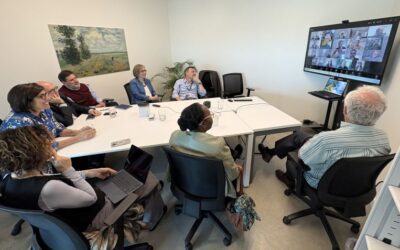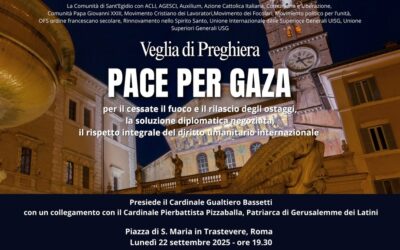A group of Focolare volunteers from the Spanish communities recounts: “It seems only yesterday that we began to work with the “Brotherhood with Africa” project. It was in April 2009. To help the project grow we had organized several activities in the region of Murcia, which concluded with a benefit dinner. Now we are holding the fifth edition.”
The project began in Budapest in 2006 during the Volunteersfest, an international event that gathered thousands at the Hungarian capital. The title of the event was “The world is but one country. We are waves upon the same sea, leaves of the same tree, flowers of the same garden.” There a project was launched for promoting academic scholarships for African students from different areas, along with an idea of making one’s own city a place in which the culture of brotherhood shines. One group of volunteers that attended from Aljucer decided to act on the proposal.
“We felt called upon, and in 2007 began to obtain legal status for an association that would help achieve our goal: making Aljucer a place that promotes a culture of brotherhood. Many activities followed, even with other associations, but our main project continues to be the “Brotherhood with Africa” project.” Every year we put up posters. Local businesses help to spread the project by donating products that can be raffled off at the benefit dinner. The monies collected are added to the scholarship fund.
“The benefit dinner is a yearly event that everyone looks forward to. We are joined by new people every year. We never had more than 90 dinner guests before, but this year we had 125 – quite a number for a country like ours which has been hit by so many crises.” During the evening there was a presentation of the project: the number of scholarships thus far, the amount of money that has been collected, the academic areas in which the scholarships have been applied and the experiences of students. Following the presentation there was the gift drawing and conclusion with some local performing artists. Among the artists, for the first time, was Carlos Pinana di Cartagena, a ‘flamenco’ guitarist and professor at the Conservatory of Murcia. Together with four of his students he offered us a fine concert of ‘flamenco’ guitar music.”
“We were happy,” the animators of the event say, “because we believe that these events served a bit in promoting a culture of brotherhood. A culture that makes us equals, that makes us feel that we are brothers and sisters, which is a sufficient reason to work for each other, with each other.”
Source: www.amu-it.eu




0 Comments